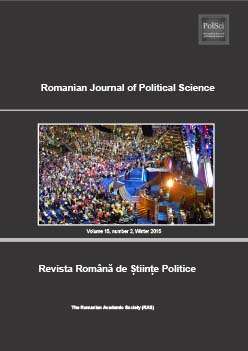Political Competition Impacts on Government Expenditure Growth: an Evidence from OECD Countries
Political Competition Impacts on Government Expenditure Growth: an Evidence from OECD Countries
Author(s): Ali Riza ÖzdemirSubject(s): National Economy, Governance, Public Administration, Government/Political systems, Public Finances, Fiscal Politics / Budgeting
Published by: Societatea Academică Română (SAR)
Keywords: political competition; government expenditure growth;
Summary/Abstract: Political competition is defined as the level of control held by individual political parties as captured by the measures of effective number of parties, number of parliamentary parties etc. This article investigates the effect of political competition on the rate of government expenditure growth using competing theories and panel data from 21 OECD countries. In the existence of political competition, neo-classical theories predict a relatively lower rate of growth, while public choice theories suggest an excessive rate. The empirical results presented here are more supportive of neoclassical predictions. The results also show that competition does constrain government growth even after controlling for ideology. Furthermore, the results show that competition has a greater constraining impact on government growth when there is a change in the ruling party or coalition.
Journal: Romanian Journal of Political Sciences
- Issue Year: 15/2015
- Issue No: 02
- Page Range: 147-179
- Page Count: 33
- Language: English
- Content File-PDF

